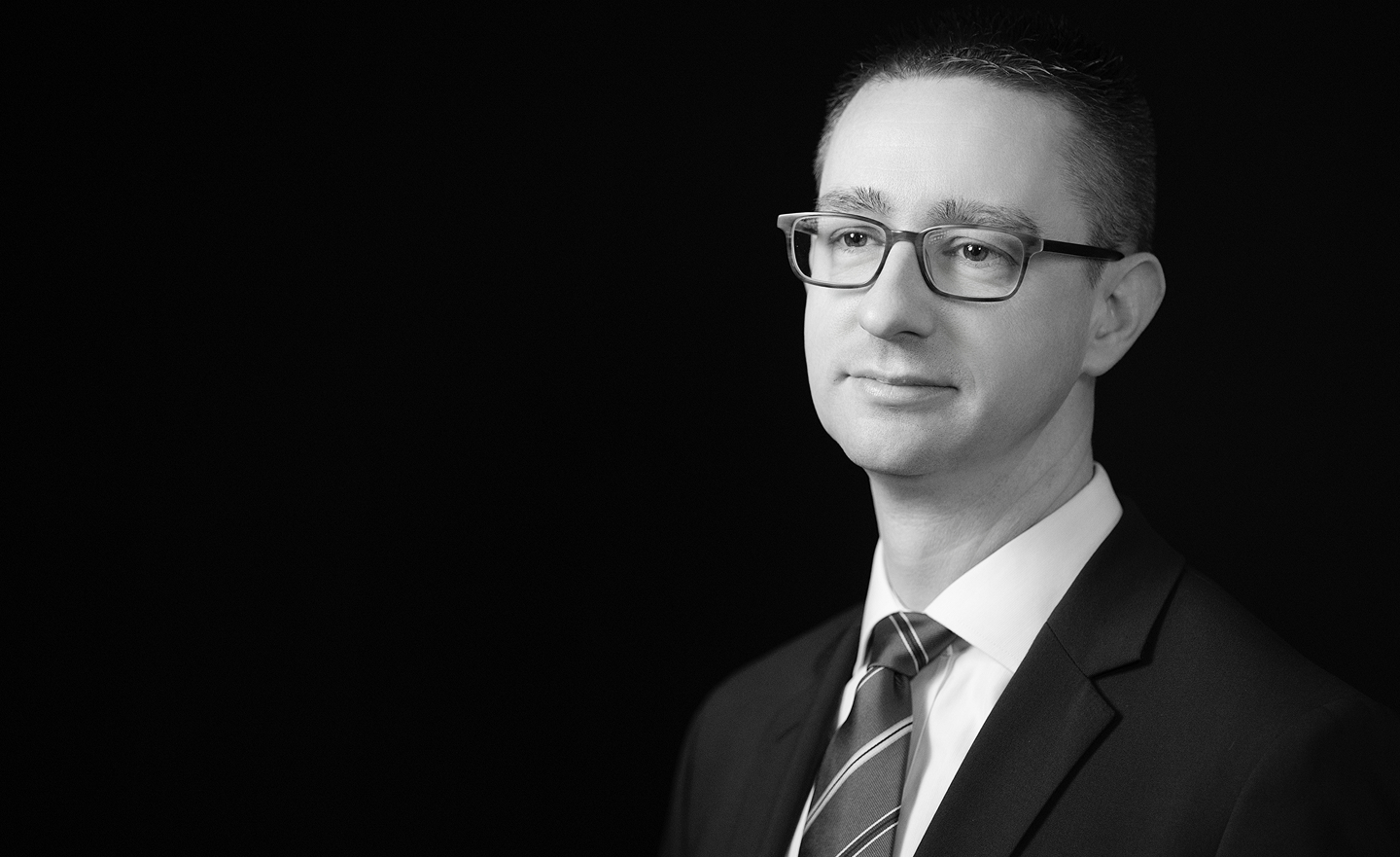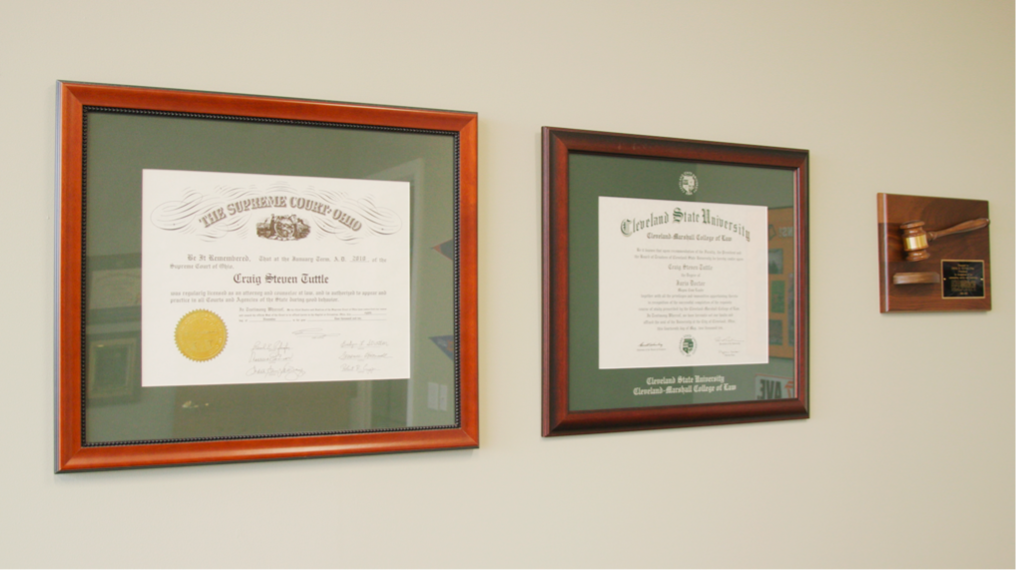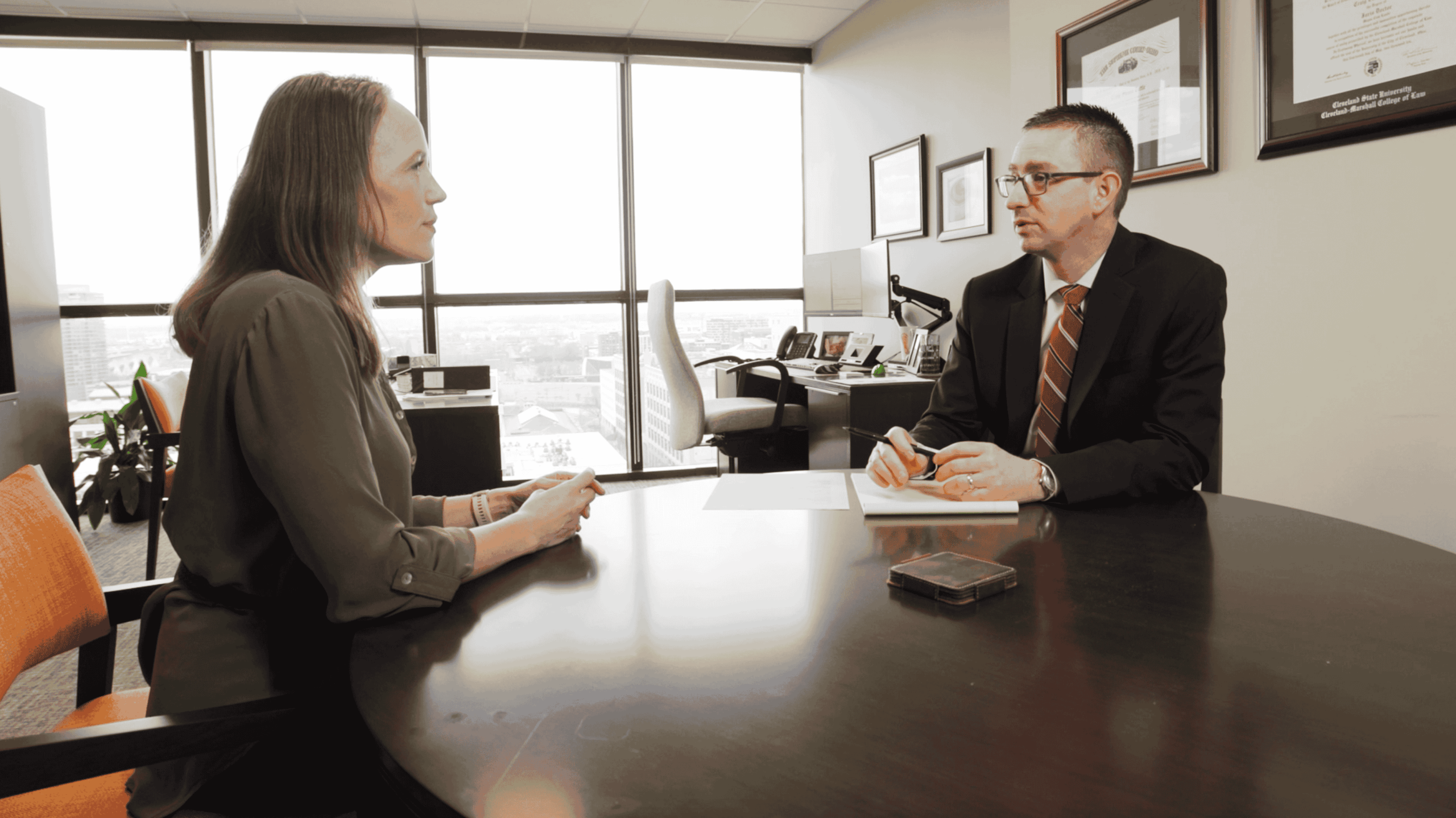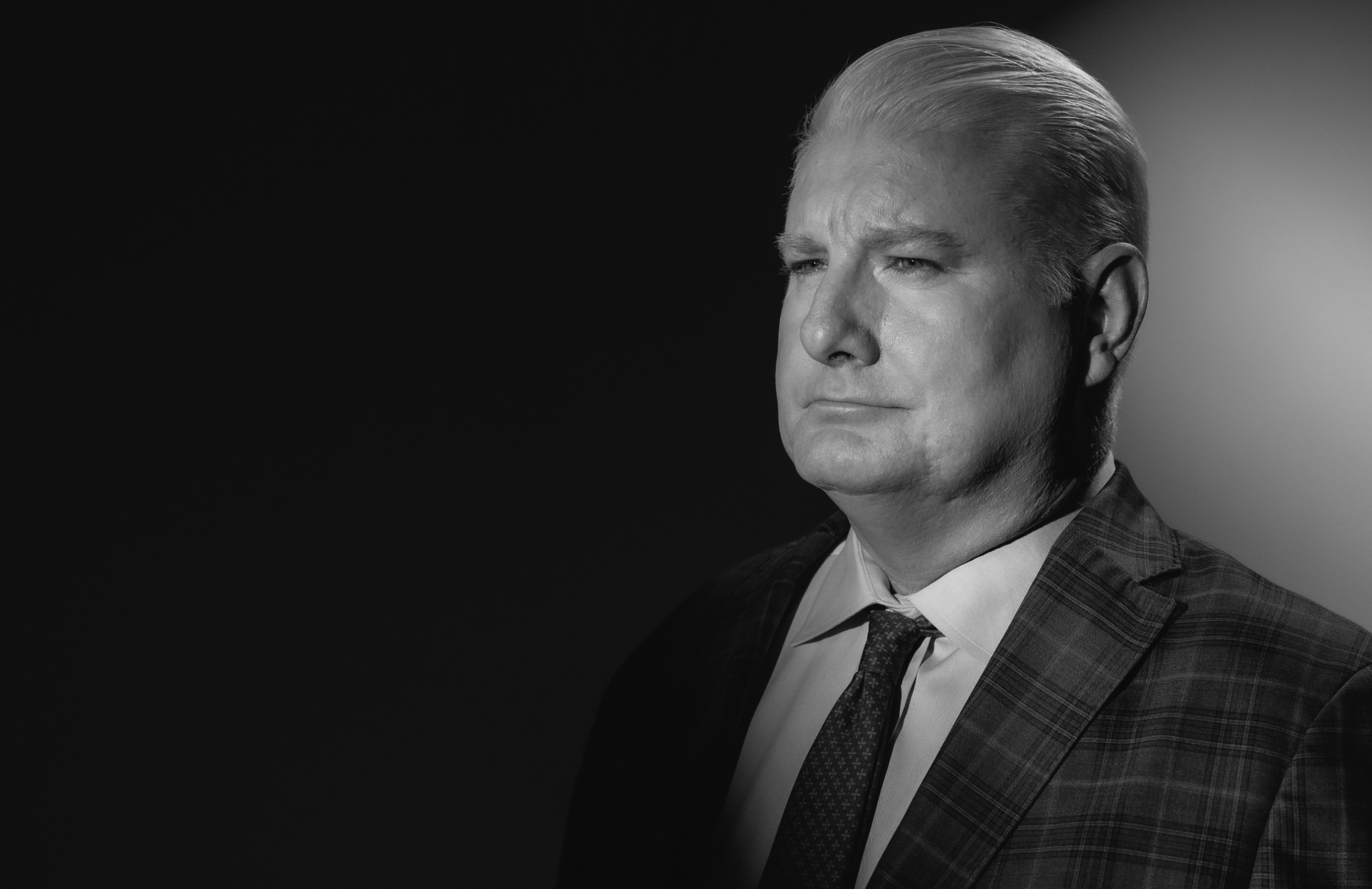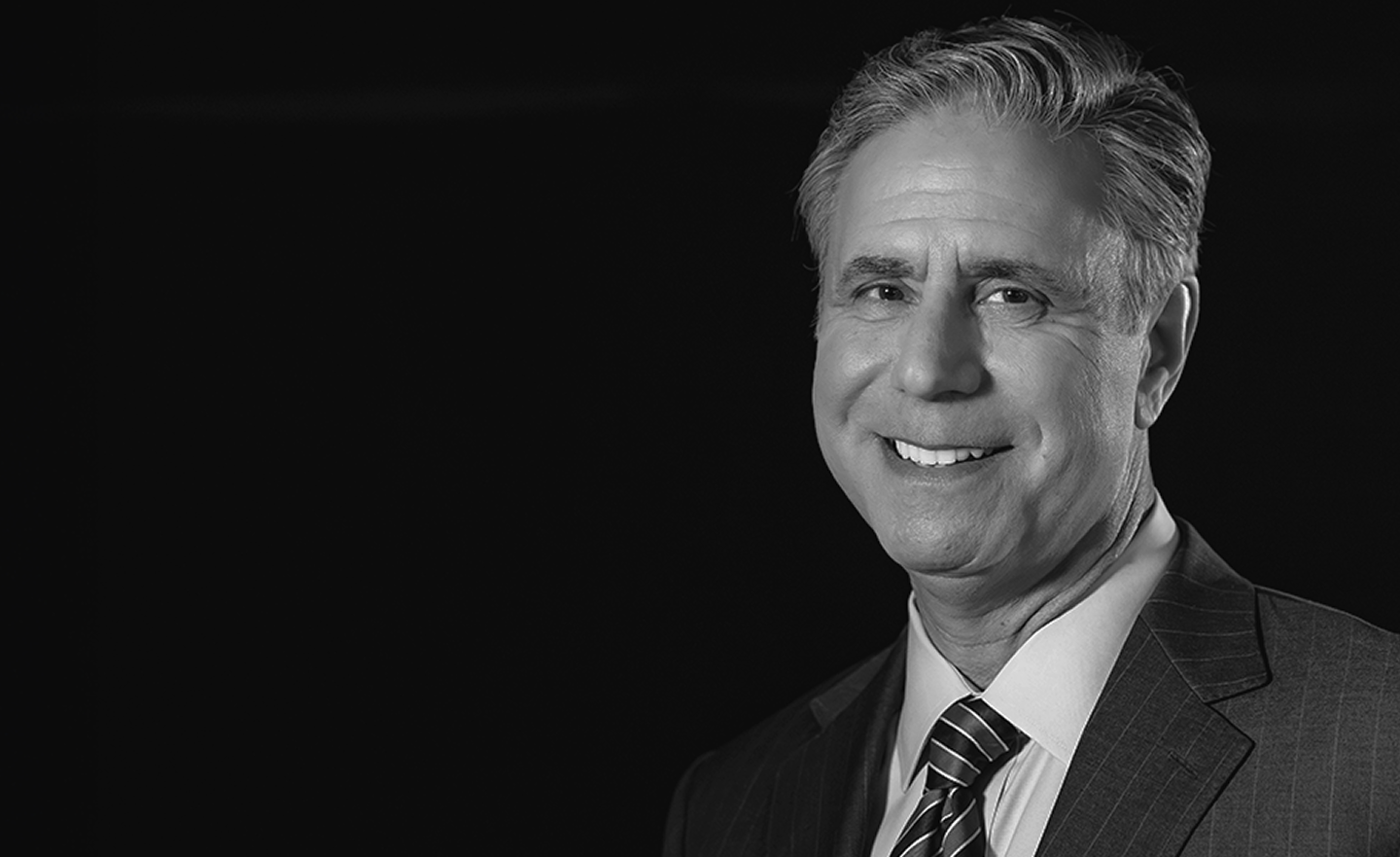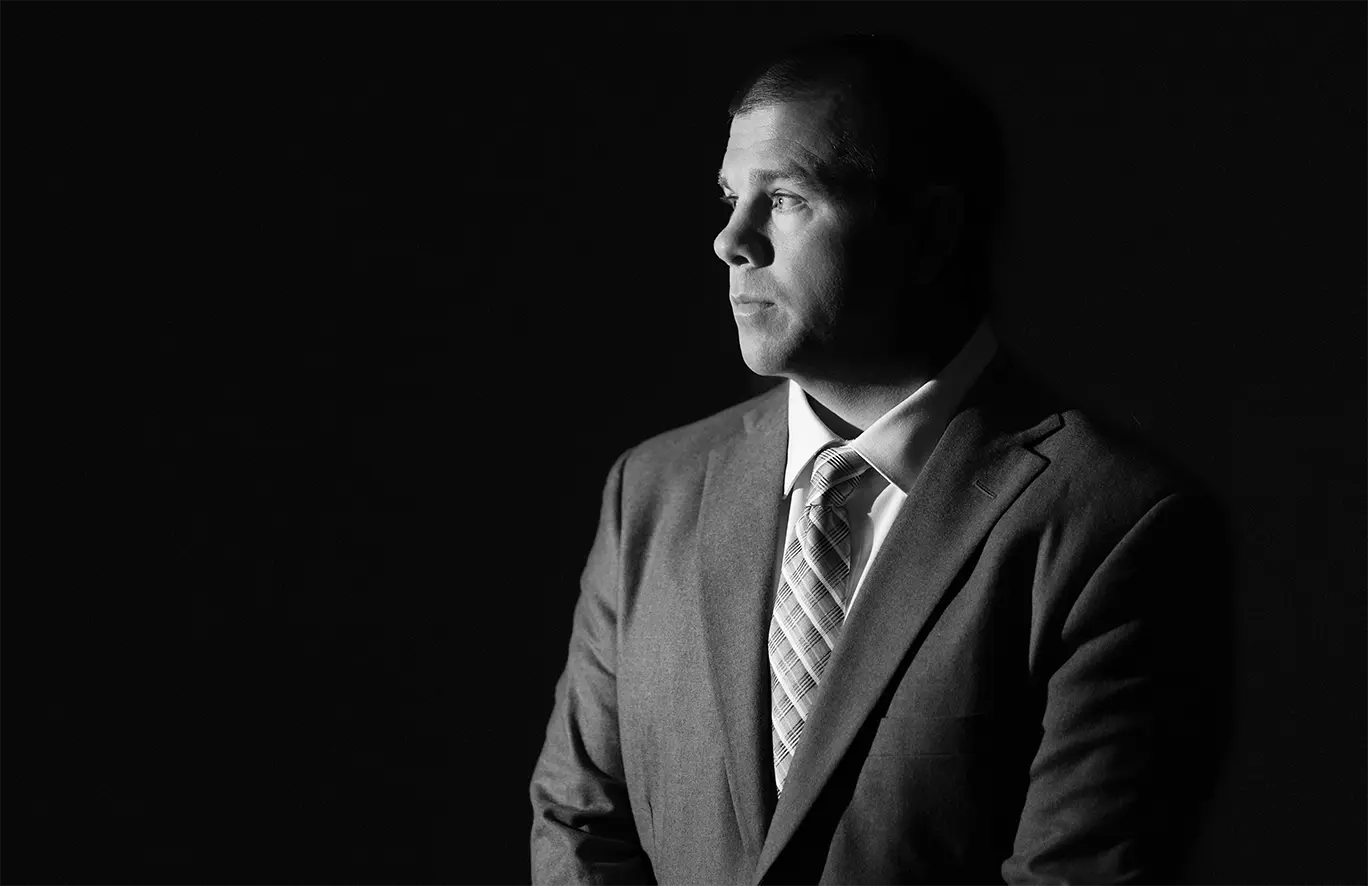Craig TuttleManaging partner at Leeseberg Tuttle
Who pursues justice when healthcare giants delay and deflect malpractice cases?
Craig Tuttle,
that’s who.
The Cost of Care vs. The Price of Silence: Trial Lawyers Defend Victims of Medical Malpractice
After hours, it would seem that Craig Tuttle is just a regular person living in Columbus, Ohio. The socks go on – left foot, then right. He drives himself to work and then home again. He has dinner with his family. He even coaches his son’s sports teams, and sometimes, he helps with the local Boy Scout troop.
The difference is that Craig works no ordinary day job. He’s a trial lawyer, and like his predecessors, they’re in the business of human connection and communication for one sole purpose: to be a lifeline in someone’s darkest hour.
“Today, trial lawyers play such an important role because we are the attorneys for [those] who don’t have access to [legal help] on a regular basis,” Craig says. “They don’t have the funds to hire attorneys for issues that arise.”
As the managing partner of Leeseberg Tuttle, one of Ohio’s most respected personal injury law firms, Craig has built his career around helping people who have suffered unthinkable, catastrophic harm at the hands of those who were supposed to care for them.
Specifically, the law firm focuses on medical malpractice and wrongful death, operating exclusively on a contingency fee basis. That means the firm only gets paid if it wins. It’s a business model that underscores a deeper belief: that justice shouldn’t be reserved for the wealthy or well-connected.
But for Craig, the drive to become a lawyer wasn’t born of business. It was personal.
A calling, not just a career
Craig’s path to practicing law started early. As a seventh grader, he took part in a shadowing program and asked his parents if he could spend the day with the family attorney. That half-day experience left an impression that would stick.
In fact, it appealed to Craig so much that he ended up working for that lawyer for two years during high school, eventually spending half his school days at the law firm. It’s safe to say that while other students were exploring electives, Craig was drafting his career and setting himself up for a strong future in litigation.
“As I got older and thought about law school, what was most important to me was [using my] skills to help others,” Craig remembers.
After earning his law degree from the Cleveland-Marshall College of Law, Craig joined Leeseberg Tuttle and quickly built a reputation for his analytical sharpness and deep compassion. Today, as the law firm’s managing partner, Craig is at the helm of a team known statewide for its integrity, preparation, and record-setting results.
“[Our clients] depend on us to help them through [the legal] process and bring resources to the table that they would have never otherwise had available,” says Craig.
Throughout his career journey, this realization became the foundation for how Craig approached every case – especially cases where the odds were stacked against his clients.
The case of Bradley Metts
One of the most defining cases in Craig’s career began in 2018 with a nine-year-old boy named Bradley Metts. What started as a treatable ear infection quickly turned into a catastrophic medical crisis, changing Bradley’s life forever.
Even after seeing a doctor for the ear infection, Bradley still didn’t receive adequate medical attention which left the infection untreated for too long. Eventually, the infection spread to his brain, causing a condition called locked-in syndrome.
This condition left Bradley completely paralyzed, unable to move any part of his body save for one eyelid. This was despite him being fully conscious and aware – desperately trying to communicate with the world around him.
“Cognitively and mentally, he was all there,” explains Craig. “He knew where he was, who everyone was,” which was perhaps what made it all the more devastating for he and his family.
Bradley’s family lived in a rural community with limited resources, but the costs of his long-term care would run into the millions each year for the rest of his life. Fortunately, cases like Bradley’s were precisely what Craig and his team at Leeseberg Tuttle had prepared for.
“What we saw [in Bradley’s case] were the characteristics of medical malpractice litigation that make it so difficult, time-consuming, and expensive,” Craig recalls.
By the time the case reached trial, the defense had enlisted 42 expert witnesses. Craig and his team worked tirelessly to match them expert for expert, reviewing more than 90,000 pages of documents, conducting dozens of depositions, and making repeated courtroom appearances – all of which inflated costs to the extreme.
“We were up against three different sets of defense lawyers, all of whom hired tons of experts,” Craig says. “It was designed to drive up the cost for us and our clients – to prevent us from seeking justice.”
But walking away was never an option. Backed by their own network of experts – as well as unwavering commitment – Leeseberg Tuttle secured a $44.5 million verdict that would change everything for Bradley. It enabled his family to build a home environment equipped to meet Bradley’s needs so he could live with his loved ones – not a hospital, where many expected him to live for the rest of his life.
“Cases like Bradely’s are exactly why I continue do what [I do],” says Craig. “I’m so honored that I can impact individual lives and serve people as opposed to business interests.”
“I’m so honored that I can impact individual lives and serve people as opposed to business interests.”
Craig Tuttle
Managing partner at Leeseberg Tuttle

“I’m so honored that I can impact individual lives and serve people as opposed to business interests.”
Craig Tuttle
Managing partner at Leeseberg Tuttle
Justice delayed is justice denied
Another case that tested the law firm’s resolve involved a pattern of egregious medical conduct in a local intensive care unit. Over the course of several years, an ICU physician administered fatally excessive dosages of fentanyl to numerous patients – many of whom were terminal, but some of whom were not.
Eventually, the hospital acknowledged that at least five of the patients were not actively dying and could have recovered with proper treatment. Instead, their lives were hastened, and in some cases, abruptly ended, by medication protocols that defied all standards of care.
Craig and his team ended up representing 17 families whose loved ones were impacted by this negligent physician.
“It was not an easy case, but this individual had affected so many lives,” recalls Craig.
Over months of investigation, the firm uncovered internal records that showed the hospital had previously questioned the doctor’s prescribing practices. Rather than being transparent, the hospital withheld information – even after being ordered by courts to release it. Each delay was a calculated attempt to exhaust the plaintiffs and derail the case.
But Craig didn’t show up just to walk away.
“[Hospitals and insurance companies] try to drag the process out longer and longer because justice delayed is justice denied – and that’s their goal,” Craig says. “That’s a constant battle that we’re having in any of our medical malpractice cases, especially.”
Thanks to such dedicated time and effort, Craig helped win a $22.7 million settlement for the 17 families and the permanent removal of the physician from medical practice.
“Sometimes that’s what needs to happen,” Craig says. “It’s certainly not the everyday case. But when those big cases come along, it’s really important that folks like us are there to step up for these clients.”
Advocacy beyond the courtroom
Craig’s commitment to justice extends far beyond case outcomes. In Ohio, where legislative efforts to cap damages and limit access to civil justice are a constant threat, he has taken an active role in shaping policy that protects citizens’ rights – citizens who may one day be Leeseberg Tuttle clients.
“I’ve been privileged to be involved in the drafting of multiple statutes to make things better for average Ohioans,” Craig says.
One of those efforts involved passing legislation to limit the amount hospitals could charge for medical records – a cost Craig describes as “out of control.” Not to mention, such a financial barrier keeps legal help out of reach for cases with lower damages.
“It’s a very real issue that presents a barrier to justice for a lot of clients,” explains Craig. “Trying to remove those hurdles is really important in what we do.”
Unfortunately, that valiant effort becomes more challenging year after year.
“A real threat to our clients and their ability to seek justice are the laws passed and work done by our elected officials that try to limit or predetermine what our clients’ injuries are worth,” Craig notes. “We continue to fight that daily at the State House. We certainly don’t get paid to do that – but it’s important to our clients.”
The cost of justice and the value of support
Craig has learned firsthand the staggering financial toll of medical malpractice and medical negligence cases. Before finding a banking partner that met his law firm’s needs, Leeseberg Tuttle self-financed everything, sometimes waiting months or years to recoup their litigation expenses.
“Self-financing in a [contingency fee] firm like ours is very stressful,” Craig admits. “As much as you try not to let it affect your decision making, it absolutely does affect your choices about how you litigate a case.”
But when he was introduced to Esquire Bank, everything changed.
“Since partnering with Esquire, we’ve been able to better utilize the case line of credit that allows us to spend the money we need and want to spend on our client’s case to battle those large corporations,” Craig says. “Ultimately, when you can’t obtain justice – when justice becomes too expensive – justice is going to be denied. And we’re trying to avoid that for our clients.”
Most notably, the partnership allowed Leeseberg Tuttle to rethink its case cost financing strategies.
“We tried to refocus how we operate as a business and part of that was bringing in Esquire and utilizing the financial support that they bring to the table,” says Craig.
But beyond financing, Esquire provided a level of carefree banking service Leeseberg Tuttle hadn’t experienced before. By providing tools that actually matched the needs of his contingency fee law firm, the partnership with Esquire has turned out to be more than transactional – it’s mission-aligned.
“Big corporations [and] insurance companies have a lot of resources at their disposal. They can be the loudest voice just by spending more money,” explains Craig.
“Our clients don’t have that advantage. They depend on us to help them through that process – to be their voice.”

